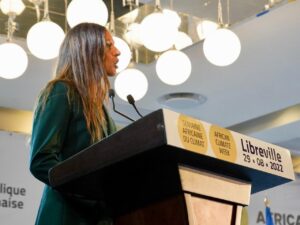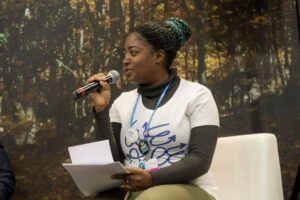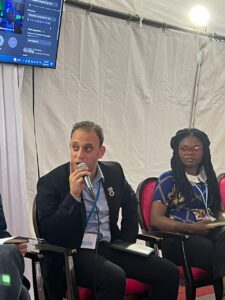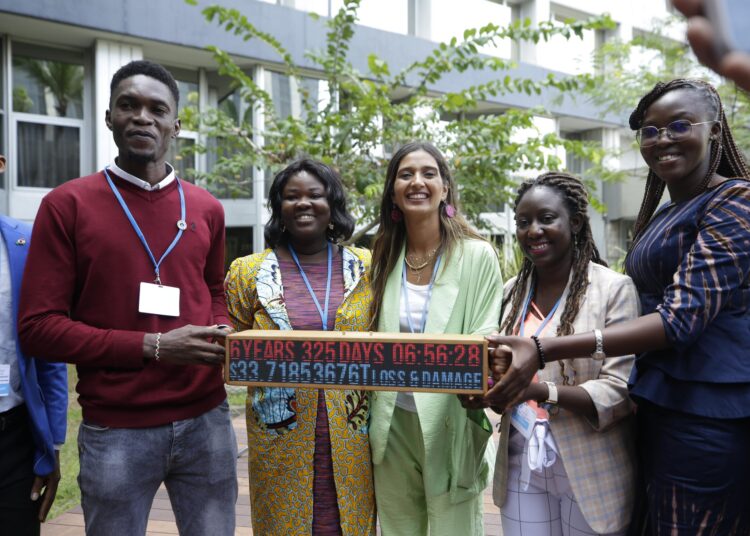As COP27 approaches, many events are being held in the run-up to this major event, which is due to take place in Sharm el-Sheikh this November. Although Africa contributes least to global emissions, it is the most vulnerable to the impact of climate change and is likely to bear the brunt of climate change. For this reason, Africa Climate Week (ACW 2022) in Libreville, Gabon from 29 August to 2 September was particularly important.
Egyptian Foreign Minister Sameh Shoukri told the opening session of ACW that Africa is committed to spending 2-3 per cent of its economy each year to counter climate change. Meanwhile, Africa’s share of greenhouse gas emissions is only four per cent.
“These figures show the African responsibility but also the lack of climate justice,” Shoukri said.
The event was organised by UN Climate Change in collaboration with the UN Development Programme, the UN Environment Programme and the World Bank Group.
As for regional partners, they included the African Union, the Africa Development Bank (AfDB), the UN Economic Commission for Africa (UNECA) and UN Gabon.
During this event, the COP27 Presidency held two major sessions, ‘What COP27 Means to Africa’ and ‘African Pathways to a Just Transition’.
The event brought together stakeholders to drive collective climate action across countries, communities and economies.
ACW 2022 also tackled issues such as resilience against climate risks, the transition to a low-emission economy and partnerships to meet pressing challenges.

Youth also had a voice in the presence of the first ever COP27 President Envoy on Youth Dr Omnia el-Omrani.
Speaking to The Egyptian Mail, el-Omrani pointed out that the first in-person consultation was held in ACW 2022 with the participation of over 60 young leaders from African youth.
“We asked about health, youth capacity building and policy,” she added.
“Many other topics were tackled, including how to amplify youth-led action and how to increase the meaningful participation of young people.”
“I also took part in other sessions related to gender considerations in finance, just transition and how African youth can take leading position in the transition,” she remarked.
El-Omrani clarified that the main concern of young people is not having a voice in decision-making as key partners in the climate agenda. There are also other concerns regarding guidelines of their participation in the COP to ensure their most effective participation.
As for the impact of climate change on women, the youth envoy said that ACW specifically discussed women and finance. The event also highlighted how climate change affects their access to education.
The event so highlighted the impact of climate change on women when it comes to finance due to difficulty in accessing finance.
More worryingly, climate change leads to higher mortality in women than men.
“However, many solutions were discussed as well, such as investing in green cooking oil,” she said.

In a related context, Elizabeth Gulugulu of the African Youth Initiative on Climate Change (AYICC) and YOUNGO Global Focal Point the Children and Youth Constituency of the UNFCCC, praised COP27 for appointing a youth envoy.
“We hope this appointment of Dr Omnia will improve the participation of youth in the UNFCCC process as decision makers, not just numbers of the delegation,” she said.
“Africa Climate Week was as a platform to network, show best practices and engage with the private sector on tangible climate solutions. This is very important before COP27 as it allows us to align our initiatives and speak with one voice.
“Everyone at the climate week understood that we are behind time in meeting our targets. There was a huge call for climate justice from youth, in addition to discussing climate finance to improve the adaptive capacity of the region.”

Ahmed Fathy, who is national coordinator for the Panafrican Climate Justice Alliance (PACJA) and Founder of Youth Love Egypt Foundation, was also in Gabon for the ACW. He stressed that ACW is of paramount importance as it highlights priorities of African continent in terms of climate action.”
“The event gave voice to the African people who are grappling with the severe impacts of climate change. This helps promote climate justice and enhance climate action from a broader perspective,” he said.
“There were discussions on the role of civil society in climate action within the framework of preparations for COP27. Many hopes are pinned on COP27 and we hope that many tangible outcomes will be reached.”






Discussion about this post